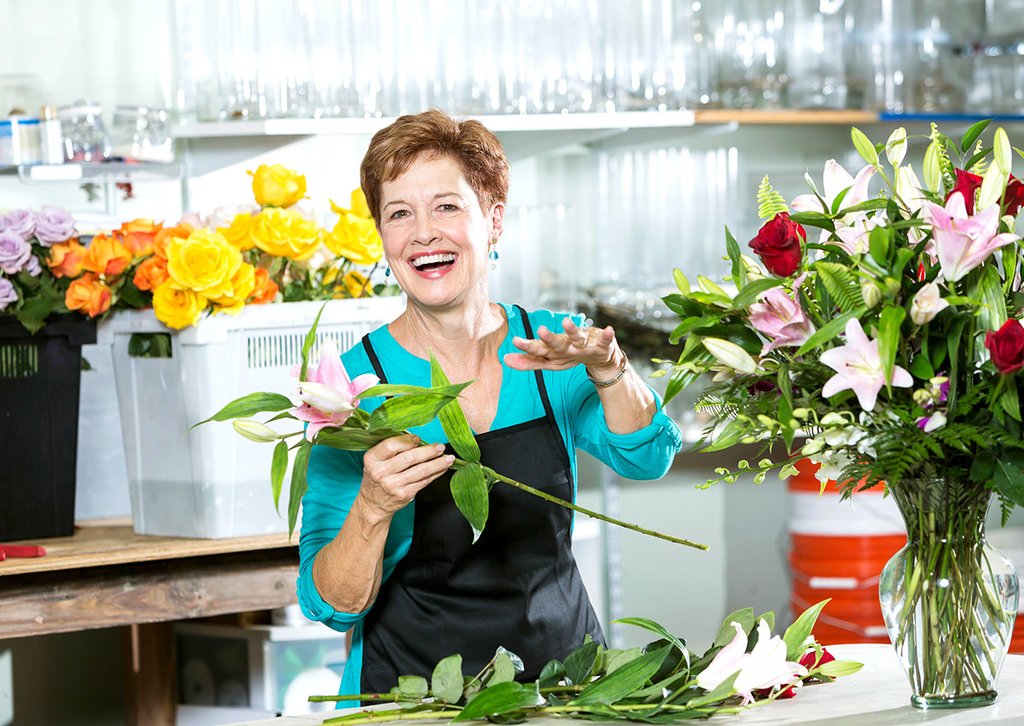Filomena Tassi is determined to ensure that older Canadians are valued
By Peter Feniak
Photo courtesy of Ministry of Seniors Canada.
Filomena Tassi was appointed Canada’s Minister of Seniors in July 2018 and, given the country’s changing demographic makeup, hers is a big job.
“It is a huge portfolio,” the former high-school chaplain says. “I have a lot to learn.”
Though relatively new to Parliament and the Cabinet, the 56-year-old first-time Member of Parliament for Hamilton West–Ancaster–Dundas has a comfort level with her new role.
“Politics has been a part of my life from the time I was a young girl,” she says. That was the influence of her mother, a one-time constituency assistant for an MP. “My mom was active,” she says. “I was in the background. I canvassed. I was volunteering. I used to get on the loudspeaker when we used to roll with the bus. I loved it. I’m a lifelong person in politics. It’s not new to me. And to get things done, this is where I need to be. And I will work in this system to advocate hard for seniors.”
When I ask about her mother, the energetic minister pauses and takes a breath as her eyes moisten. “She’s having a hard time,” Tassi answers. “My mom, over the last number of years, has suffered falls, broken bones, and rehab, and this has been very difficult. She’s sharp. Sharper than I am. She is a fighter and she is a woman with a positive attitude. But witnessing first-hand this journey has…it gives you maybe a greater passion.” Tassi pauses and says quietly, “My mom deserves the best.” It’s easy to sense that she’s not speaking of her mother only.
“I want the message to get out to seniors that we value their contributions, and that we want to do what we can to help them contribute more.
“In Canada, we’re entering uncharted territories. The 2016 census said that for the first time, there are more seniors than there are children 14 or under. By 2036, the population will be 25 per cent seniors. We have to prepare for what’s coming. We have to look at the whole spectrum.”
Given the current life expectancy of the average Canadian, that spectrum can now encompass at least 20 years of being a senior. Those years come with many stages—from healthy aging to palliative care—and many issues—from the cost of prescription drugs to elder abuse and fraud.
“I have a respect and love for seniors,” Tassi says. “That’s what I came with. There’s an opportunity here to recognize the valuable contributions that seniors can continue to make. We have to do more to invite them to make those contributions. We can do better at that. And where does that happen? I think it’s combatting this view of seniors as older people that we have to take care of. Yes, there are some who need health care, who are suffering dementia, but seniors are a group that we can gain so much from as a community.”
Even when she was working as a high-school chaplain, elders were on Tassi’s mind. She launched a project to link her school’s students with local seniors at Christmas. “We connected them one-to-one so the seniors could do their shopping,” she smiles. It was, she says, “magic…the conversations that would happen, the young people helping the seniors pick great presents, and seniors sharing their advice, their experience.”
Once elected to Parliament, Tassi instituted “Tea and Talk with Tassi,” visiting seniors’ residences in her riding. In October of 2018, she was on-site to open a newly renovated multi-use kitchen at Grace Anglican Church in Waterdown, ON, a facility renewed thanks to a federal New Horizons for Seniors Program grant. The widely dispersed grants (up to $25,000), Tassi says, bring “opportunities for seniors to get out and engage in social activities.” (The new kitchen will also support the local food bank.) While the grants make a difference, bigger issues—national pharmacare, affordable housing, elder abuse and fraud, income security, home care—continue to loom.
Untapped Potential
Filomena Tassi is a third-generation Canadian (“All four of my grandparents came from Italy”) with a lifetime connection to politics and community. She grew up in industrial Hamilton, ON. Her father, Phillip Tassi, worked at Dofasco, the steel company.
“He was a millwright in tin mill mechanicals,” Tassi says. “I worked there for my summer jobs for two years. My siblings [Tassi is one of four] worked there, too. I’m the baby in the family.”
Her mother, Irene, “was a woman who went day and night; she worked. She prided herself on raising her family first and foremost, but also helping people. And she did that through working for a federal cabinet minister—she ran his constituency office. [That minister was John Munro, 22 years an MP (Hamilton East) with major cabinet portfolios including Health and Welfare and Labour.] Her door was always open—people of all ages coming and going. I loved that. I would sometimes come down in the morning and there’d be somebody sleeping on the couch, somebody she’d taken in. That was like my grandmother, who’d always have a table at the back of the house to feed people who were hungry.” After a family illness, “my mom and dad moved into my [maternal] grandparents’ home and looked after them till the day they died.”
Tassi ran for office provincially in 1995 as a Liberal, finishing second to the NDP candidate in Hamilton Centre, but on October 19, 2015, she won one of the 184 seats that created the new Liberal federal government. Like many MPs, she is a lawyer. As we talk, she shares the story of her early legal career:
“I started in criminal law. The first serious case I had was the first bestiality case in Ontario. It involved a motorcycle gang and the initiation of one of the boys. From the time of disclosure right to the sentencing, I thought, Okay, I don’t think this is suited to me. The client we were representing used to be an altar boy at one of the local churches. His mother was in the courtroom. When the judge gave the verdict—‘10 years on the first charge, and there are three charges’—they had to carry the mother out of the courtroom. That was when I said to myself, I don’t know that I can do this.”
She moved to corporate law, including some time in a partnership with her husband, Jim Oliver. But, Tassi says, she felt a stronger calling: “I went to chaplaincy.” After courses in philosophy and religious studies at the University of Waterloo, Tassi spent 20 years as chaplain at Bishop Tonnos Catholic Secondary School in Ancaster, where she and Oliver raised their two children. She has been awarded for exemplary service as a mentor and co-wrote, with her missionary/author brother, Peter, a book called Opening the Door: Unleashing the Greatness in Our Teenagers. Her involvement with youth, Tassi says, resonates with her work with seniors:
“Youth have an untapped potential that is so great, but they need the confidence; they need to be encouraged. Whenever there was an opportunity to do something that was just, that was right, that was good, they seized it. I’m experiencing that same thing with seniors. Seniors need to be invited. We need to tell them how valuable their contributions are to us. Seniors have lifelong lessons to offer our youth. That’s so important—look at social media, the pressure our youth face, the number of girls I had in my office because of the bullying….
“And when I travel across the country, I’m witnessing the power of intergenerational connections in places like The Mount [a long-term-care facility in Charlottetown], where students volunteer. The contributions that seniors can make are brought to life. And seniors want to make those contributions; they want to make life easier for our young people. And the intergenerational piece is just one part. The workplace is another.”
Entrepreneurship is growing among energetic seniors. For many, retirement can mean transitioning to new kinds of work. On the other hand, according to the Broadbent Institute, one in four single senior men in Canada lives in poverty; the figure for single women is 28%. Income security and affordable housing are ongoing challenges. Elder abuse, fraud, and simple neglect are growing with the size of the senior population.
As governments at all levels tackle the problems of Canada’s elder population, part of Tassi’s job is to remind Canadians of the federal government’s support at both the local and national level. She can cite the big numbers rapidly:
“We rolled back the age eligibility on the Old Age Security pension and the Guaranteed Income Supplement [GIS] for low income seniors from 67 to 65. This prevented 100,000 seniors from going into poverty. We increased the GIS for the most vulnerable single seniors—that raised 57,000 seniors out of poverty. We’ve made investments in things like home care and palliative care because we know seniors want to age in place. And this involves our provincial and territorial partners because the money’s transferred. We’ve committed to a dementia strategy, palliative care, poverty reduction, the national housing strategy…the 2016 budget committed $200 million to create spaces for seniors’ residences.
“Meeting with my provincial and territorial partners and also with partners at the municipal level is important. And I have to work with my colleagues, other cabinet ministers. Fraud and elder abuse involves [the ministeries of] Public Safety and Finance. Then there’s the Ministry of Health, with respect to dementia and palliative care. When you talk about isolation, you have to talk about transportation. Yes, all these efforts cost money, but when we get it right, we save at the end of the day. It’s preventative.”
Vulnerable Age Group
Many seniors today live alone and go without regular social interaction, and those with responsibility for elders are recognizing the destructive nature of isolation. The world took note in January 2018 when British Prime Minister Theresa May appointed a Minister for Loneliness, saying “For far too many people, loneliness is the sad reality of modern life.” Former US Surgeon General Dr. Vivek Murthy has written that loneliness leads to “a greater risk for cardiovascular disease, dementia, depression, and anxiety.” Among Canada’s seniors, Tassi says, “isolation is growing because of ageism and other factors,” and governments at all levels “can offer services to keep seniors engaged, keep them active, keep them fit, offer mentorship opportunities.”
At its best, the world of seniors thrives. Canadians 55 or older are the country’s most active volunteers. “Seniors haven’t lost sight of that,” Tassi says. “When I look at the volunteers when I go to various events, they are ‘senior heavy.’ Seniors are out there volunteering, and I think that’s fantastic.”
We talk about qualities that emerge as a generation becomes older—stoicism, patience, vulnerability. “Certainly one of the most significant challenges that seniors have to face is how their abilities change and they have to accommodate,” Tassi says.
Each new minister receives a mandate letter from the Prime Minister, outlining what is expected of him or her. One sentence from this minister’s mandate letter seems to sum up Filomena Tassi’s task as a voice for our elder generation:
“As Minister of Seniors, your goal will be to help the government better understand and make decisions on the needs of Canadian seniors and ensure that programs and services are developed that respond to Canada’s aging population.”
As our interview time runs short, I ask this intense politician what, in her new role, makes her optimistic and what she finds the most challenging. She thinks for a moment.
“I think the most challenging part is going to be to ensure that I hear the voice of all seniors, their family members, and those who work with and for seniors. That is what the Prime Minister asked me to do, to ensure that the priorities are the right priorities. And yes, there are many. We’re not going to do anything without the voice of seniors. This is what’s important. They have to drive this. How do they do that? By me listening.
“What makes me most optimistic is the goodwill of Canadians who know that our seniors need a future to which they can look forward. And Canadians are willing to invest their time, their energy, and their resources to make that happen. That is the most uplifting.
“The thing that strikes me most is the number of people and organizations working hard to make sure seniors receive the support they need. That’s the part where I have the greatest hope.”
As a first-term Member of Parliament, Filomena Tassi’s appointment to the Cabinet in a newly minted Ministry came as a surprise to many. Shortly after, she was happy to meet a flurry of reporters at Mohawk College in her hometown, telling them, “Investment in our seniors is an investment that’s good for all Canadians.”






